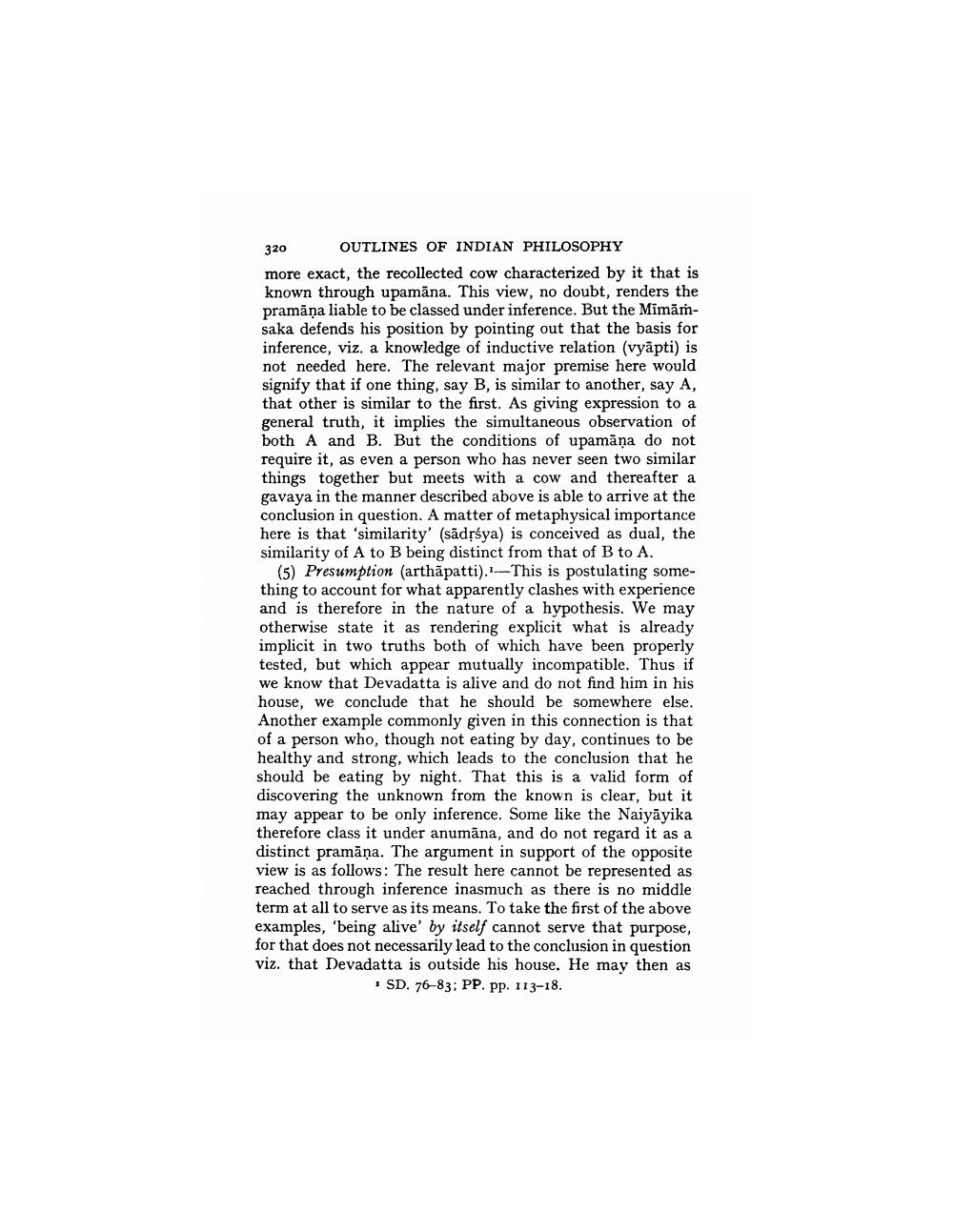________________
320 OUTLINES OF INDIAN PHILOSOPHY more exact, the recollected cow characterized by it that is known through upamāna. This view, no doubt, renders the pramāna liable to be classed under inference. But the Mimāṁsaka defends his position by pointing out that the basis for inference, viz. a knowledge of inductive relation (vyāpti) is not needed here. The relevant major premise here would signify that if one thing, say B, is similar to another, say A, that other is similar to the first. As giving expression to a general truth, it implies the simultaneous observation of both A and B. But the conditions of upamāna do not require it, as even a person who has never seen two similar things together but meets with a cow and thereafter a gavaya in the manner described above is able to arrive at the conclusion in question. A matter of metaphysical importance here is that 'similarity' (sādssya) is conceived as dual, the similarity of A to B being distinct from that of B to A.
(5) Presumption (arthāpatti). This is postulating something to account for what apparently clashes with experience and is therefore in the nature of a hypothesis. We may otherwise state it as rendering explicit what is already implicit in two truths both of which have been properly tested, but which appear mutually incompatible. Thus if we know that Devadatta is alive and do not find him in his house, we conclude that he should be somewhere else. Another example commonly given in this connection is that of a person who, though not eating by day, continues to be healthy and strong, which leads to the conclusion that he should be eating by night. That this is a valid form of discovering the unknown from the known is clear, but it may appear to be only inference. Some like the Naiyāyika therefore class it under anumāna, and do not regard it as a distinct pramāņa. The argument in support of the opposite view is as follows: The result here cannot be represented as reached through inference inasmuch as there is no middle term at all to serve as its means. To take the first of the above examples, 'being alive' by itself cannot serve that purpose, for that does not necessarily lead to the conclusion in question viz. that Devadatta is outside his house. He may then as
· SD. 76-83; PP. Pp. 113-18.




